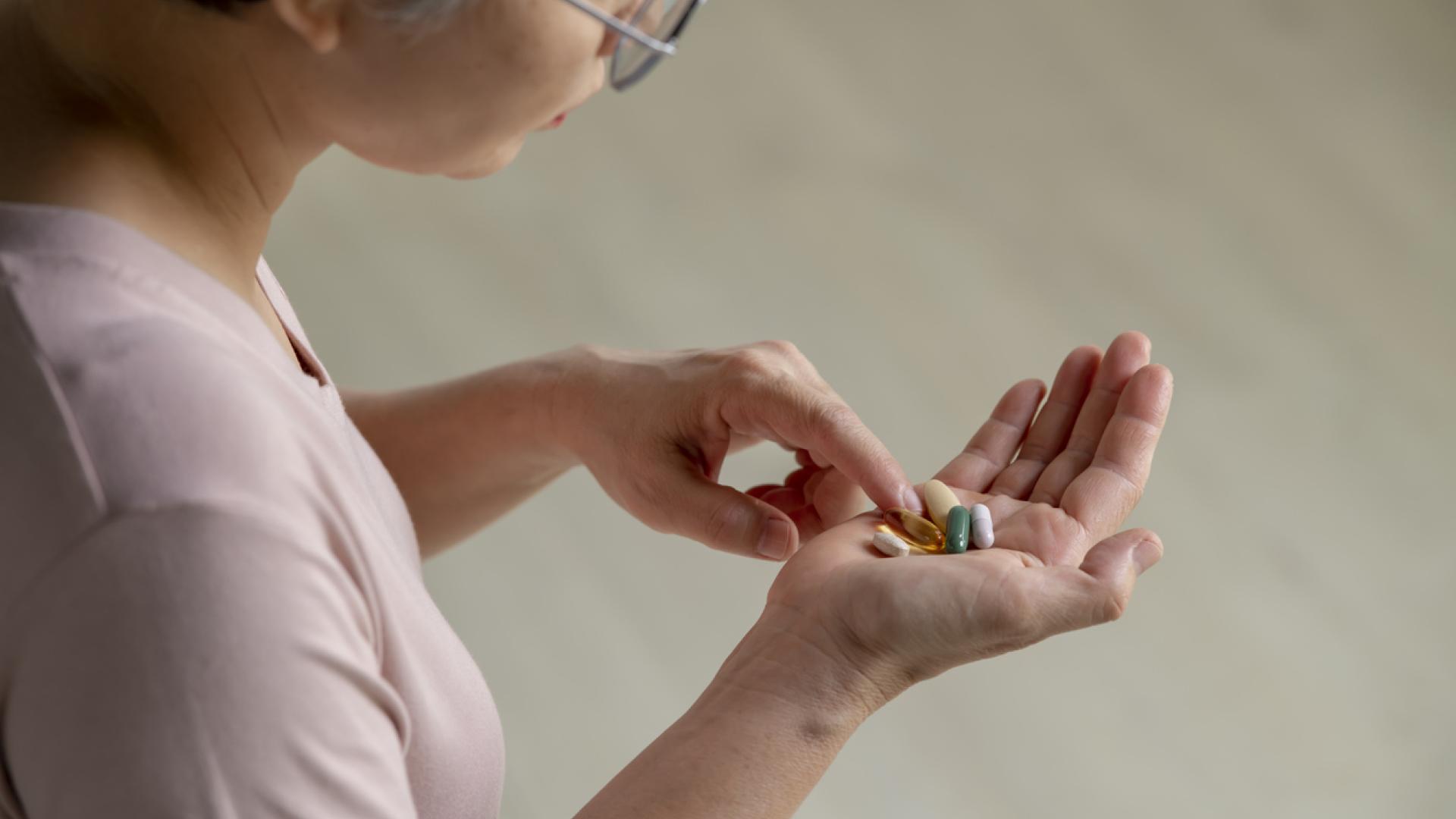
If you’ve been diagnosed with age-related macular degeneration (AMD), certain vitamins can help slow progression of the disease and decrease your risk of losing central vision. But it’s important to find the right vitamins, since many are marketed for eye health but only a few have formulas that have proven effective.
The Age-Related Eye Disease Study 2 (AREDS2), sponsored by the National Institutes of Health, showed that supplementation with certain micronutrients reduces the progression of dry AMD into the more advanced stage in which vision loss occurs by 25 percent.
Nutrients in the AREDS2 Formula
The AREDS2 formula contains:
- 500 mg of vitamin C
- 400 IU of vitamin E
- 2 mg of copper (cupric oxide)
- 80 mg of zinc
- 10 mg of lutein
- 2 mg of zeaxanthin
The antioxidants lutein and zeaxanthin are a specific type of phytochemical (micronutrients from plants) called carotenoids, which are structurally related to vitamin A. Our bodies do not make these. Plants make them, in part to serve as antioxidants that protect them from potentially harmful sunlight.
When we eat lutein and zeaxanthin, they are transported to the retina, where they are thought to protect against light-induced damage. There’s normally enough lutein and zeaxanthin in the macula, the central part of the retina, to turn this part yellow. In fact, the full name of the macula is macula lutea, which means yellow spot.
Vitamins C and E are antioxidants. Zinc also has antioxidant properties and is needed for many enzymes. Copper is part of the AREDS2 formula because zinc supplementation can cause copper deficiency, since these two micronutrients compete for absorption in the intestines.
Who Should Take AREDS2 Vitamins?
AREDS2 vitamins are helpful for people whose retinas have a certain number of white spots called drusen, which can be seen by the ophthalmologist during a dilated eye exam. They are not recommended for people who have no or only a few drusen because these people have such a low risk of developing AMD, at least over the next five years.
Buyer Beware: Look for AREDS2 Formula
One NIH study found that many vitamins marketed for eye health did not contain the nutrient amounts stated on the label. This can occur because the supplement industry is not regulated as stringently as the prescription drug industry.
In contrast, some brands do contain the right nutrients at the correct levels. Look closely at vitamin labels to ensure the label says AREDS2 formula and check their listed vitamins against our chart, above. If you are uncertain about a specific product, ask your doctor for recommended brands that meet the AREDS2 formulation. AREDS2 products can be purchased over the counter. The dose is generally one soft gel twice a day with a meal.
What About Other Multivitamins?
Research shows it’s safe to take a multivitamin along with the AREDS2 formula. Zinc supplementation was even associated with an increased lifespan in people with age-related macular degeneration. However, any high-dose nutritional supplement may interfere with certain medications and compete with other important nutrients for absorption into the body.
Therefore, people who are considering taking the AREDS2 formula should make a list of all supplements and over-the-counter medications they take and share it with their healthcare provider.
AREDS1
The first AREDS supplement formula tested contained beta-carotene, which was later found to increase the risk of lung cancer in people who smoked. In light of those findings, the AREDS2 formula replaces beta-carotene with the antioxidants lutein and zeaxanthin.
Eating for Eye Health
Good nutrition plays an important role in eye health. The Mediterranean diet, which emphasizes fruit, vegetables, beans, nuts, and fish; minimizing red meat and dairy; and choosing monounsaturated fats such as olive oil over saturated fats such as butter, has shown positive results in people with macular degeneration.
In one study, strong dedication to the Mediterranean diet resulted in a 25% reduction in the risk of progressing from early to late macular degeneration, and an almost 30% reduction in the risk of progressing from moderate to late macular degeneration.
If you are at risk of developing macular degeneration, you can supplement your diet with foods containing high levels of lutein and zeaxanthin. These foods also contain hundreds of other phytochemicals that are likely to be helpful. Foods such as egg yolk (go easy due to cholesterol), yellow corn, orange or yellow peppers, kale, broccoli, spinach, kiwi, grapes, zucchini, and squash have high levels of lutein and/or zeaxanthin and are thought to be protective against age-related macular degeneration.
About BrightFocus Foundation
BrightFocus Foundation is a premier global nonprofit funder of research to defeat Alzheimer’s, macular degeneration, and glaucoma. Through its flagship research programs — Alzheimer’s Disease Research, Macular Degeneration Research, and National Glaucoma Research— the Foundation has awarded nearly $300 million in groundbreaking research funding over the past 51 years and shares the latest research findings, expert information, and resources to empower the millions impacted by these devastating diseases. Learn more at brightfocus.org.
Disclaimer: The information provided here is a public service of BrightFocus Foundation and is not intended to constitute medical advice. Please consult your physician for personalized medical, dietary, and/or exercise advice. Any medications or supplements should only be taken under medical supervision. BrightFocus Foundation does not endorse any medical products or therapies.
- Dry AMD
- Eye Health
- Lifestyle








